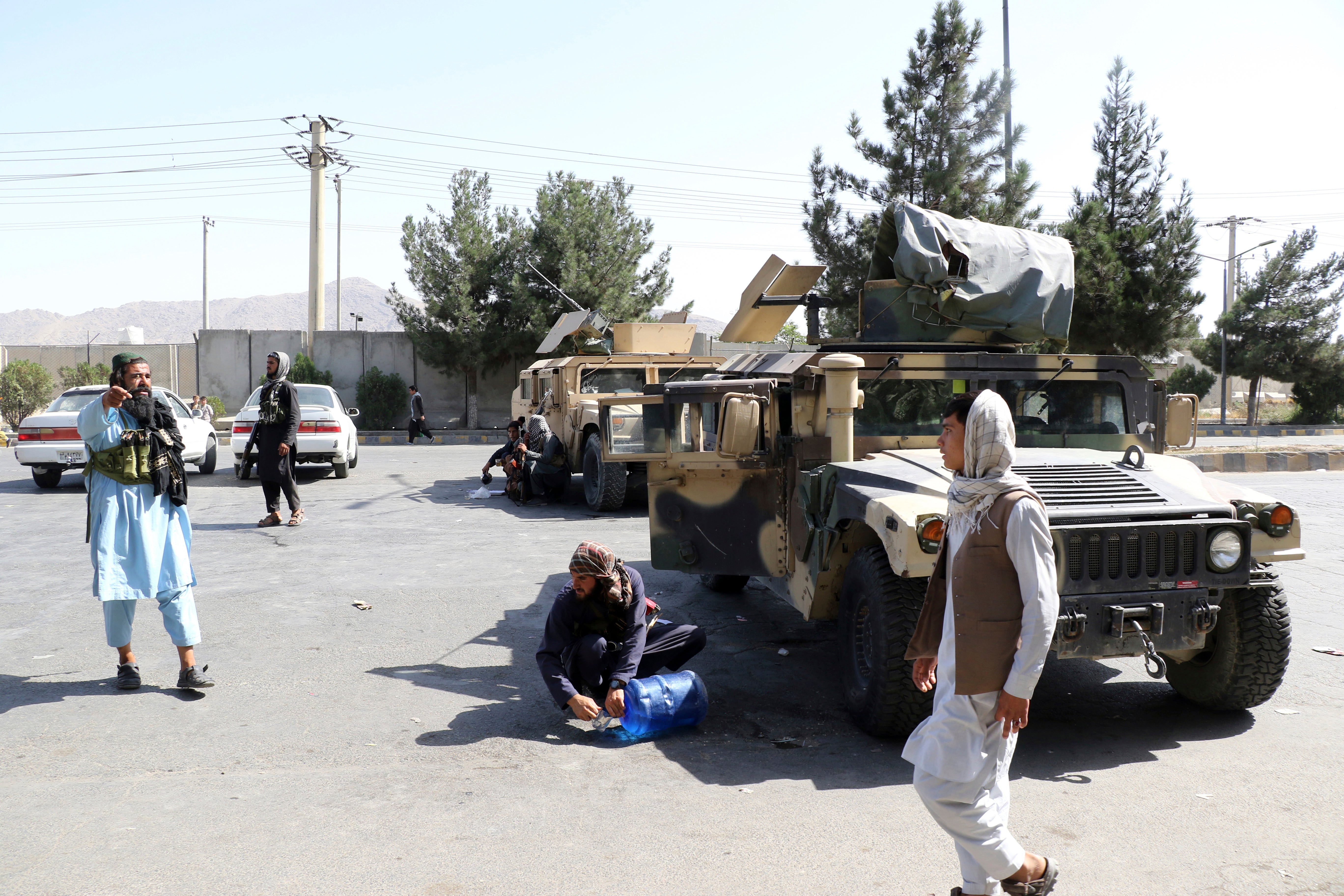The Taliban has taken Afghanistan – but can it keep control?
A cross-country network of 'eyes' helped the group bring down the Afghan government – but insurgents like Isis-K are a different prospect, writes Borzou Daragahi


To anyone else, he was a nondescript middle-aged Afghan man driving a 20-year-old Toyota Corolla along the highway from Baghlan to Mazar-i-Sharif.
But to the Taliban scouts and operatives watching the road that day in 2019, he was special. They somehow knew he was a senior officer of the Afghan National Directorate of Security—the Kabul government’s intelligence branch.
The rocket-propelled grenade that struck him near Pol-e-Khomri seemed like it came out of nowhere. It was followed by a spray of gunfire. Minutes later, the man’s remains were discovered by a convoy of Afghan army recruits that the Taliban didn’t bother with, according to an account provided by the dead man’s son, who is now in exile in Turkey.
“At the time, even I didn’t know what he did for a living,” says the 21-year-old. “But the Taliban did.”
Intelligence has been a key to the Taliban’s victory over the Afghan government and the international coalition backing it. Its infiltration of Afghan security forces and surveillance of both international and domestic troops gave it the edge in a complicated 20-year war of attrition that saw it lose power only to claw its way back into the driver’s seat this month.
But as the bombing of Kabul airport this week showed, if the Taliban hopes to keep control and gain legitimacy it must quickly refocus its intelligence operations on targetting Isis-K and other militant groups
It may find that infiltrating and crushing an insurgent group structured much like itself will be tougher than the government it just felled. Governments like that of Afghanistan have rules and bureaucratic norms insurgents can exploit. Governments frown on nepotism and cast a wide net when hiring, allowing insurgents to infiltrate and sabotage institutions. Accusations of double loyalty must be corroborated and suspects granted due process.
But insurgent groups are bound by no such rules. They can use stricter vetting procedures when they recruit. Blood ties between new recruits and trusted operatives are an advantage. Accused traitors don’t need to have their day in court. Any suspected infiltrator can be summarily executed.
Governments are composed of complex institutions where collaboration between different agencies and with officials and bureaucracies of other nations makes them more effective. But that also increases the chances of leaks, miscommunications or delays which can be exploited by an adversary.
Insurgent groups like the Taliban or Isis face different challenges. They often rely on face-to-face contacts to pass on intelligence for fear of having electronic communications breached by superior powers. The method is slower, to be sure, but securer.
Now that the Taliban is in charge, it will have to shift gears dramatically and abandon its old ways in order to fend off Isis, which, with its devastating attack on the airport on Thursday signalled an all-out war on the nascent government.
“The Islamic Emirate strongly condemns the bombing of civilians at Kabul airport, which took place in an area where US forces are responsible for security,” Taliban representative Suhail Shaheen wrote in a tweet, using the formal name for the group. “The Islamic Emirate is paying close attention to the security and protection of its people, and evil circles will be strictly stopped.”
During a reporting trip to Afghanistan years ago, a source told me that ears are more valuable than eyes to the Taliban’s intelligence operations – but that’s questionable. The group has informants scattered around the nation, feeding them raw intelligence about troop movements, personnel numbers and weapons. But without dealing in communications, they lacked the ability to understand what weapons could do or what the numbers meant.
Over the last few years, the Taliban’s intelligence penetration allowed for successful attacks on military convoys and the movements of government officials, such as the intelligence officer travelling to Mazar-i-Sharaf.
And for all their capabilities, US intelligence agencies failed to predict the quick collapse of President Ashraf Ghani’s government. And while it appears the Americans picked up chatter that a possible attack on Kabul was imminent they still didn’t know where or when it would strike. The US lost 13 military personnel in the attack on Hamid Karzai International Airport claimed by Isis.
But in the chaos, the Taliban’s network of eyes did little better. The group failed to foresee the attack on the airport they were also guarding and lost 28 fighters in the bombing – as well as a mountain of credibility that they would bring security and order to Afghanistan.
Drawing on support from within Afghanistan’s ethnic Pashtun plurality, the Taliban had dotted the country with operatives.
“Since two years ago, they have established a network in and around Kabul,” said one Afghan source. “They know which families work for whom and at which locations.”
Such an intelligence capability may be effective in bringing down a government but different tools are necessary to find insurgents and prevent attacks.
After the Taliban’s takeover of Kabul, an Afghan man visited a local police station, only to find that a quiet neighbourhood guy working at an appliance repair shop was now the man in charge. He had been a secret Taliban subcommander all along.
Now that he is in control, he will be the one looking over his shoulder, wondering if the lowly shopkeeper or labourer toiling on a sidestreet is secretly an insurgent seeking to harm him.






Join our commenting forum
Join thought-provoking conversations, follow other Independent readers and see their replies
Comments